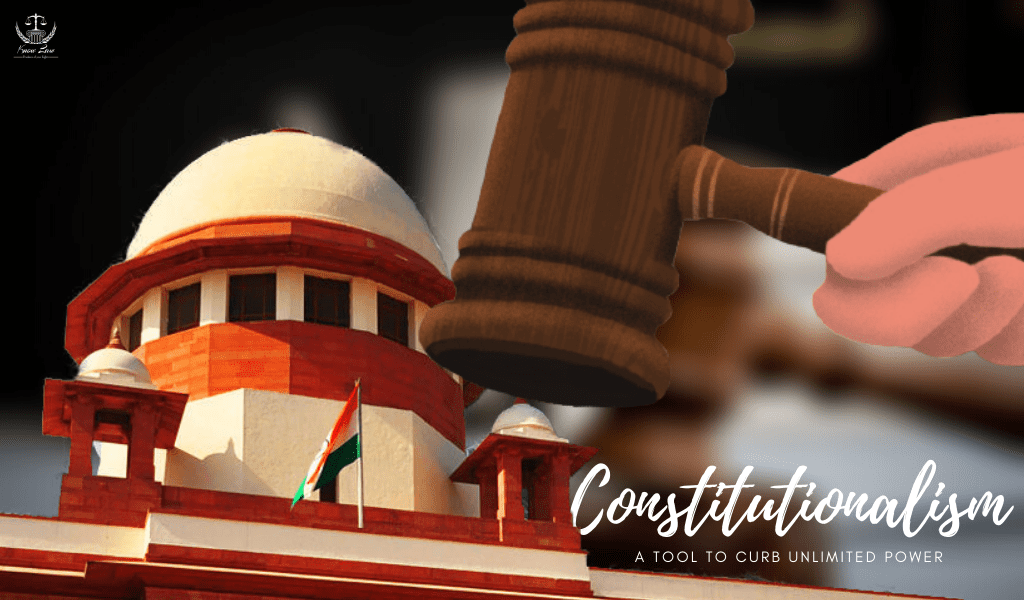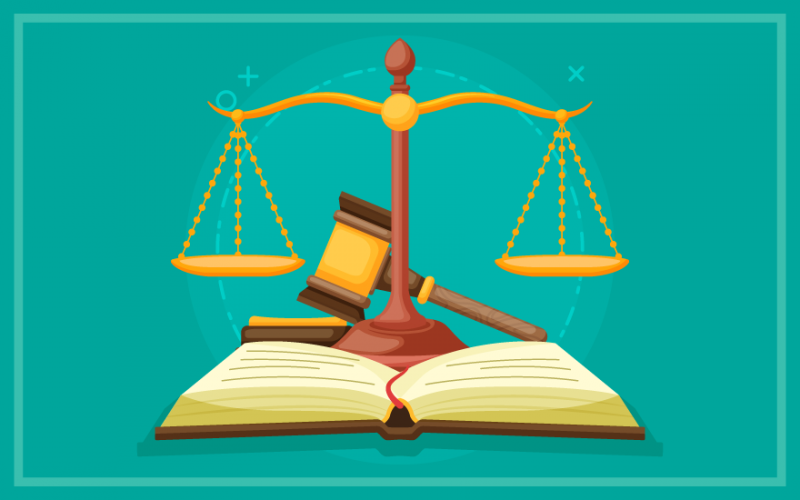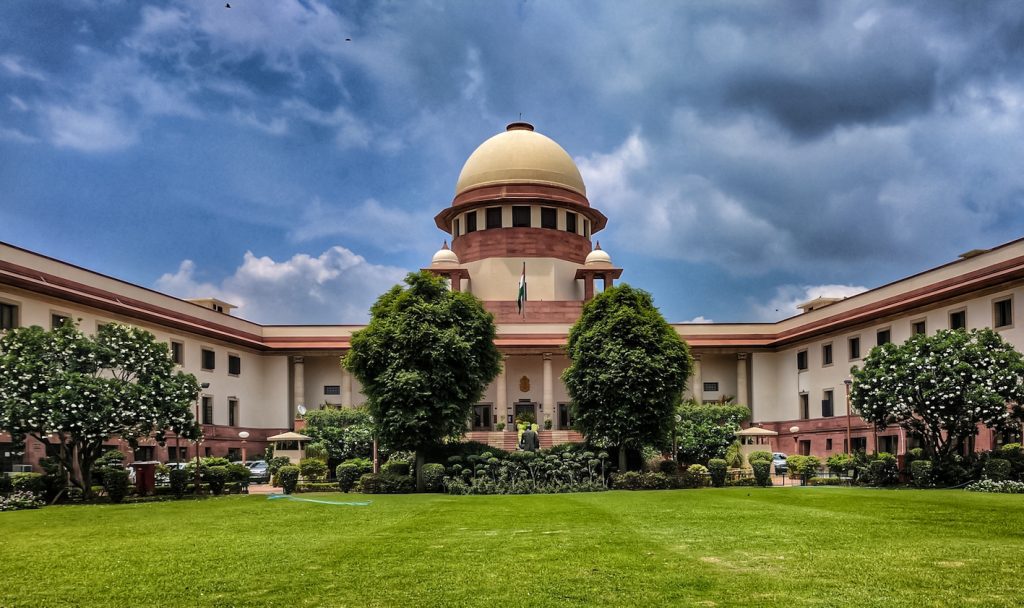
An individual lives in a nation and is governed according to the rules and regulations of that nation. These rules and regulations determine his relationship with those who make these rules and regulations. A nation that provides more freedom, whose leaders are not authoritarian, and where people are given equal rights and opportunities would be preferred by an individual than a nation where political leaders exercise their power beyond control.
A Constitution is a fundamental framework according to which the state is acknowledged to be governed. However, there is a need to ensure that the freedom of an individual is given primacy and the state does not encroach upon the liberty of the citizens, along with which comes the association of constitutionalism which ensures that powers are limited beyond theory and in practice. The word is often associated with John Locke, one of the proponents of the theory of the limited state, also a proponent of social contract theory.
A Constitution would be considered as a well-drafted Constitution when it not only provides for the rights of the people but also restricts the governing body in the nation not to exercise their power beyond certain limits but in a limited manner. The Constitution of India is a well-drafted Constitution because it not only provides for the rights and liberties of every individual but also restricts the government not to exercise its power beyond certain limits and these limits are specified in the Constitution.
What is Constitution?
Aristotle wrote that a constitution is the way of life of a citizen-body.
Government without a constitution is power without a right.
Thomas Paine
The Constitution is the set of rules and regulations, made by political powers to govern the nation. A Constitution is an aggregate of fundamental principles or established precedents that constitute the legal basis of a polity. It defines the principles upon which a state is based. A Constitution is a document having a legal sanctity that sets out the framework and principal functions of the government. The Constitution of a country gives an idea about the basic structure of the political system under which its people are to be governed. It defines the powers of the main organs of the state, demarcates their responsibilities, and regulates their relationships with each other and with people.
Defining Constitutionalism
Constitutionalism denotes limited government or a limitation on government. It insists that limitations be placed on the powers exercised by the government. Unlimited power may lead to an authoritarian, oppressive government that jeopardizes the freedom of the people. Only when the Constitution of a country seeks to decentralize power instead of concentrating it at one point, and also imposes other restraints and limitations thereon, does a country have not only Constitution but also Constitutionalism.
Unlimited powers jeopardize the freedom of the people. As has been well said: power corrupts and absolute power corrupts absolutely. If the Constitution confers unrestrained power on either the legislature or the executive, it might lead to an authoritarian, oppressive government. Therefore, to preserve the basic freedoms of the individual, and to maintain his dignity and personality, the Constitution should be permeated with Constitutionalism.

There is a difference between ‘Constitution’ and ‘Constitutionalism’. A country may have a Constitution but not necessarily Constitutionalism. Constitution ought not merely to confer powers on the various organs of the government, but also check to restrain those powers. Constitution recognizes the need for the government but also insists upon limitations being placed upon governmental powers. Constitutionalism envisages checks and balances and putting the power of the legislature and the executive under some restraints and not making them uncontrolled and arbitrary.
Origin of Constitutionalism
Constitutionalism’s origins go far back. Not only did it spring out of nowhere, but it also grew into what it is today. Way back in 1215, King John of England was compelled to sign a document called the Magna Carta by a group of powerful nobles. The Magna Carta placed certain restrictions on the power of the king. Over the years, the practical meaning of the Magna Carta has been exaggerated, but it also provided a framework for limited government.
To the year 1689, skip forward. That year, King William III of England signed the English Bill of Rights. In what is called the Glorious Revolution, King William III, who had previously been known as William of Orange, came to power. The English Bill of Rights defined the rights of the English people and put restrictions on the king and Parliament. A simple constitutional text that helped inspire the American Bill of Rights is the English Bill of Rights.
Constitutionalism and John Locke
Constitutionalism is often associated with John Locke since he was one of the prominent proponents of the theory of the limited state, which is in contrast to the theory put forth by Thomas Hobbes. Thomas Hobbes leaned more towards state absolutism.
According to Locke, man is a reasonable creature and because he is reasonable, he can decide what is good for him and what is bad. Thus, he does not advocate for an all-powerful state but rather for a limited state. Locke was a proponent of social contract theory. According to social contract theory, the obligations and rights of people are governed by a contract that has been entered by the people themselves. In other words, the conduct of the people is regulated by contract and such contract was entered into by the people because they wanted to escape the state of nature, a world where there is no state to regulate the conduct of the people(anarchy)
While Thomas Hobbes, advocated for the state to absolute by comparing the state to Leviathan (Leviathan is a biblical sea monster, which Hobbes used to describe state), Locke supported a limited state theory.
Constitutionalism in India

Various provisions of the Constitution of India contain in themselves, inter-alia the philosophy of Constitutionalism.
A state by the Constitution
The Constitution of India not just provides the rights and immunities to citizens, but also delineates the character and structure of the Indian state. The state cannot function beyond what is provided in the Constitution. The actions of states are guided by DPSP (Directive Principles of State Policy). The Directive Principles of State Policy are meant for promoting the ideal of social and economic democracy. By promoting these ideals, it ensures that the state does not become authoritarian and exercises its power in a limited manner.
Article 21 and the due process of Law
Article 21 of the Constitution of India talks about ‘protection of life and personal liberty. It provides that the life and liberty of a person cannot be deprived except by procedure established by law. In Swaran Singh v. the State of UP, it was observed by the court that public power should not be exercised arbitrarily or in a malafide manner. The power being of the greatest moment, cannot be a law unto itself but it must be informed by the finer canons of Constitutionalism.
Fundamental Rights
Fundamental rights are contained in Part 3 of the Constitution of India. There is a total of six fundamental rights that are guaranteed by the Constitution of India to its citizens.
- Right to equality (Article 14-18)
- Right to freedom (Article 19-22)
- Right against exploitation (Article 23-24)
- Right to freedom of religion (Article 25-28)
- Cultural and educational rights (Article 29-30)
- Right to constitutional remedies (Article 32)
Fundamental rights act as a wall against the arbitrary exercise of the power of the state. They direct states what not to do and act as restraints. They serve as negative covenants for the state. In IR Coelho v. State of Tamil Nadu, the court observed that the principle of constitutionalism is now a legal principle that requires control over the exercise of Governmental power to ensure that it does not destroy the democratic principles and these democratic principles include protection of Fundamental Rights. The principle of constitutionalism is based on the principle of legality which requires the Courts to interpret the legislations on the presumption that the Parliament would not intend to legislate contrary to fundamental rights. The Legislature can restrict fundamental rights but it is impossible for laws protecting fundamental rights to be impliedly repealed by future statutes.
For constitutionalism to succeed, the rights of the citizen shall be on the highest pedestal. In India, the constitutional framework gives these rights the worth they deserve by engraving them in Part III of the Constitution. Not only have these individual rights been protected by the courts, but they have also been interpreted in a way that has broadened their impact and application. The Constitutional Courts, that is to say, the Supreme Court and the High Courts, ensure the protection of these rights.
Written Constitution
The Indian State is governed and limited by the Indian Constitution, which is written, codified, and considered as the supreme law of the land. Restricted in the sense that it does not go beyond the boundaries of the Indian Constitution and its mandate. The State’s mandate cannot go beyond the Directive Principles of State Policy, which are enshrined in the Indian Constitution, Part IV.
First, it allows for a limited government, which is the essence of Constitutionalism. Three organs of the government (Legislature, Executive, and Judiciary) separate the sovereign powers. The constitution determines the powers of each organ and no organ or its instrumentality can exceed its boundaries. Not only does this avoid the monopolization of power, but a system of checks and balances is also established. This becomes an efficient instrument for maintaining constitutionalism since this separation of powers is in the Constitution itself.
In addition, the basic law of the land is laid down in a written Constitution and the legislature is also bound by the constitutional principles. A law that violates the Constitution cannot be made by the legislature. The authority of the Constitution is thus limited.
In the State (NCT of Delhi) v. Union of India, Chief Justice Mishra observed that The essence of constitutionalism is the control of power by its distribution among several state organs or offices in such a way that they are each subjected to reciprocal controls and forced to cooperate in formulating the will of the state.
Police accountability
Constitutionalism often envisages that the police must protect the privileges, freedoms, and integrity of individuals when performing their duties, the same can be guaranteed by having the police under the jurisdiction of laws and courts.
Popular Sovereignty
The concept of popular sovereignty lays down that the government derives its legitimacy from the people. No corporate body, no individual may exercise any authority that does not expressly emanate from it. Even though there is a certain sovereign entity that is empowered to govern, ultimate sovereignty resides in the nation. The power of such a sovereign entity emanates from the public.
Judicial Setup
The courts and judiciary are the foremost critical components for guaranteeing Constitutionalism, as they play a significant part in confining the control of the state. The most prominent example is the Doctrine of Basic Structure as laid down by the Supreme Court of India is Kesavananda Bharti Sripadagalvaru v. State of Kerala And Anr.
Positive Constitutionalism
According to the positive aspect of Constitutionalism, a state should work for the welfare of the people. It requires the creation of effective and competent state institutions that can ensure the wellbeing of its citizens. A Constitution fails to meet the requirement of Constitutionalism if it ignores respect for diversity and plurality in the society. Several old Constitutions that have ignored this aspect of Constitutionalism have introduced it through judicial interpretations, amendments, and appropriate legislation.
Conclusion
Constitutionalism and its meaning are now accepted as a critical standard for a democratic political system. Merely getting it in the form of text, however, is not what makes constitutionalism a reality, but what is important is imbibing its concept. By exercising its power of judicial review, the Supreme Court is gradually emerging as a gatekeeper of constitutionalism.
A written Constitution, an independent judiciary with powers of judicial review, the doctrine of rule of law and separation of powers, free elections to legislatures, accountable and transparent democratic government, Fundamental Rights of the people, Federalism, decentralization of power are some of the principles and norms which promote Constitutionalism in a country.
Editor’s Note
The concept of state emerged for the people, and by the people. Thus, it is important that people are kept at the center of it all. To ensure that people are protected, a provision in the form of the Constitution has been made. In this article, the author talks about the constitution, and a concept far vaster called constitutionalism. Examining the elements of constitutionalism, the author emphasizes the need for it and concludes that it is necessary to curb unlimited power to protect the interests of people.
Submitted by Anubhav Jindal, a 2nd Year B.A.LL.B. Student at the Ideal Institute of Management and Technology, GGSIPU